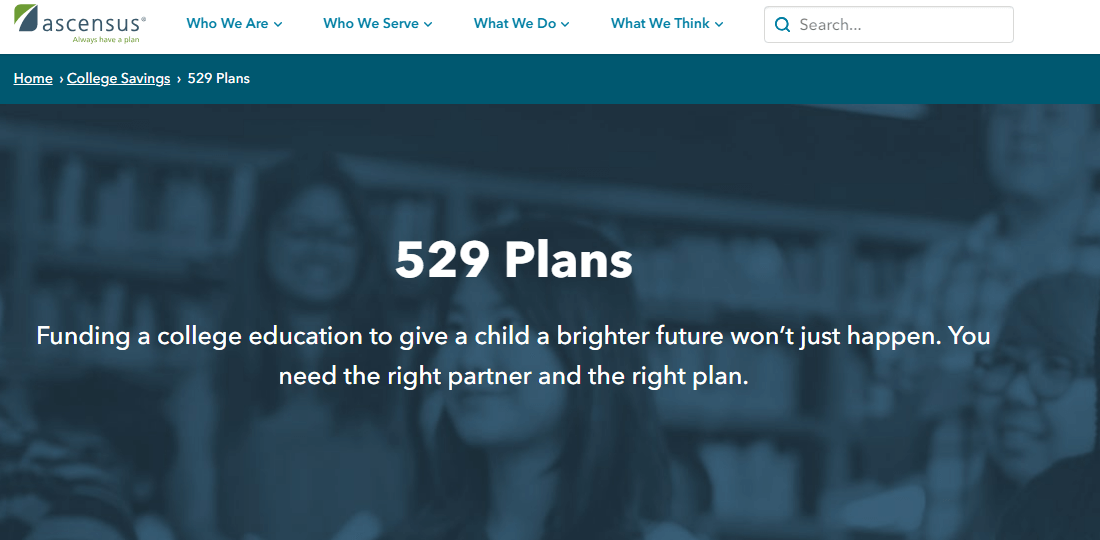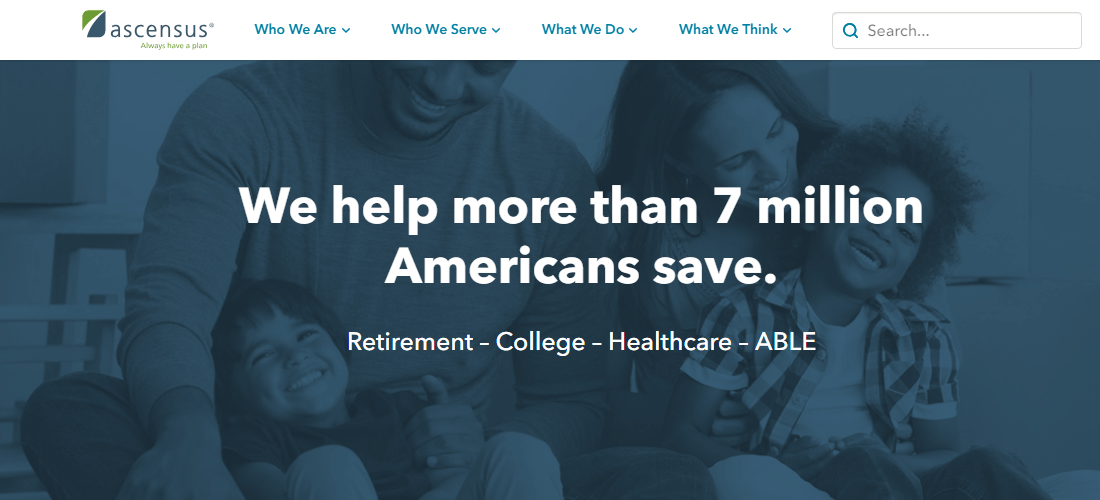
A college education does not come cheap. According to the College Board, the average public four-year college charges in-state students $9,410 in tuition and fees each year. Out-of-state students pay even more ($23,890), as do those who choose to attend private four-year colleges ($32,410). While most students receive some sort of financial aid, every dollar you save for your child’s future education expenses is a dollar (plus interest) less he or she won’t need to take out in subsidized or unsubsidized student loans.
What’s the best way to facilitate this saving? For most Americans, it’s a 529 plan. Also known as a 529 college savings plan, it’s a tax-advantaged investment vehicle designed to make it easier for families to save for their children’s future college costs. RewardExpert spoke to Kevin Cox, Chief Operating Officer of the Education Savings Division at Ascensus, about the services offered by the 529 industry leader.
529 Plans Are Simple and Flexible
“Basically, a 529 college savings plan is a simple way for families to save in a tax-advantaged manner for a child’s education,” Cox explained. “It’s very flexible, as it can be set up by a parent, aunt, uncle, grandparent or friend who wants to save up on behalf of a beneficiary.”
Much like a Roth IRA, Cox said that savers fund 529 plans with after-tax dollars. “That money is then invested and grows tax-free over time,” he continued. “And as long as you use it for qualified educational expenses, you will never pay taxes on those earnings. It’s a very effective way to save for a college education.”

Qualified education expenses include tuition, fees, books, supplies, and certain room and board costs at four-year colleges and universities, community colleges offering two-year associate degrees, trade and technical schools, and graduate schools that participate in the U.S. Department of Education’s student financial aid programs.
“With the tax reform changes that went into effect at the beginning of 2018, 529 plans now allow individuals and families to save for K-12 tuition expenses up to $10,000 annually,” Cox added. “So, they’re not just for college savings anymore. That being said, some states have yet to adopt the new legislation. It’s important for savers to check with their state’s policies for how withdrawals for private K-12 expenses will be treated from a tax perspective.”
Currently, more than seven million Americans are saving for the future with Ascensus, including four million 529 college savings accounts and more than 54,000 retirement plans.
529 Plans Offer Many Benefits
Many types of 529 plans are sponsored by states across the country. While they share many of the same features, some offer additional benefits. “Some states offer a tax benefit in addition to the federal benefit,” Cox said. “You’ll want to consider that when choosing a 529 plan.” State benefits may include a resident state tax deduction or credit for contributions.
Another benefit of saving for college with a 529 plan is the low investment minimum. “Some 529 plans offer no minimum investment,” Cox said. “But typically, you’ll see a $25 minimum. The maximum contribution limit is also very high, offering a great deal of flexibility in the accumulation of savings over time.”
Unlike a standard savings account, a 529 college savings program utilizes a wide variety of investment options. Cox encourages savers to look for one with an age-based investment track.
“If you’re investing for a newborn, for example, there will be a higher mix of equities as opposed to fixed-income investments,” he said. “As your beneficiary approaches college age, those investments automatically adjust to more conservative options. By the time your beneficiary is in college, it will have a much higher mix of fixed-income and capital preservation investments.”
Start Saving Early and Ask for Help
We asked Cox to share his tips for families preparing to save for their children’s future college expenses. His response: start saving early and ask for help.
“The sooner you start, the sooner you can benefit from the tax advantages of a 529 college savings plan and have your savings really work for you as they’re invested in the market,” he said. “Also, don’t hesitate to ask for help. A lot of times, grandparents will be very willing to provide a gift in the way of a donation to a 529 plan as opposed to another toy or something that’s not as valuable over time.”

Ascensus’ Ugift program allows savers to invite others to contribute to the plan on their beneficiary’s behalf. “Friends and family can make donations to the 529 account,” Cox said. “Saving for that tuition bill over time is a big expense in the college savings financial equation. Your own savings are only a component of it. The ability to invite others to help with that process is an added benefit.”
To learn more about the 529 college savings services Ascensus offers as well as retirement savings plans and health savings accounts, visit www2.ascensus.com.
